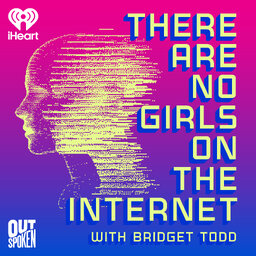AI generated Joe Rogan conspiracy theories are all over TikTok
Friend of the show Abbie Richards explains why low effort AI generated conspiracy theory content is all over TikTok right now and who is profiting from it.
With TikTok creator program, AI-sped misinformation pays: https://www.axios.com/2024/03/26/tik-tok-creator-program-ai-misinformation
Follow Abbie Richards on TikTok: https://www.tiktok.com/@tofology
In 1 playlist(s)
There Are No Girls on the Internet
Marginalized voices have always been at the forefront of the internet, yet our stories often go over…Social links
Follow podcast
Recent clips

Amazon Ring Super Bowl Ad BACKFIRES; YouTubers Exploit Women's Arrest Videos; Salesforce CEO ICE "Joke" – NEWS ROUNDUP!
1:10:54

University of Oklahoma Trans Instructor's Attorney Still in the Fight After Appeal Denied
47:18

Should You Trust Andrew Huberman? What CBS's Epstein Disaster Reveals About Wellness Gurus
1:32:51
 There Are No Girls on the Internet
There Are No Girls on the Internet